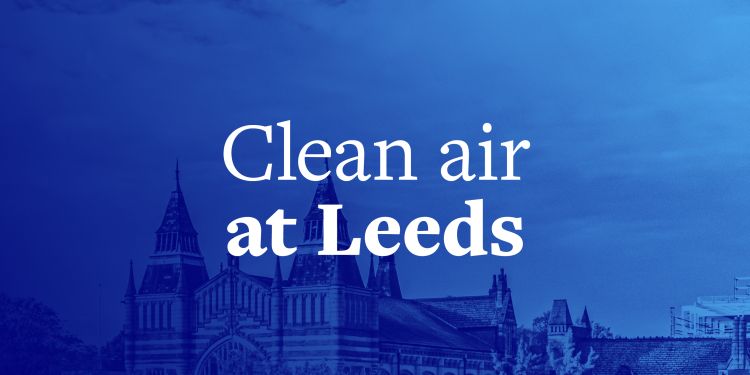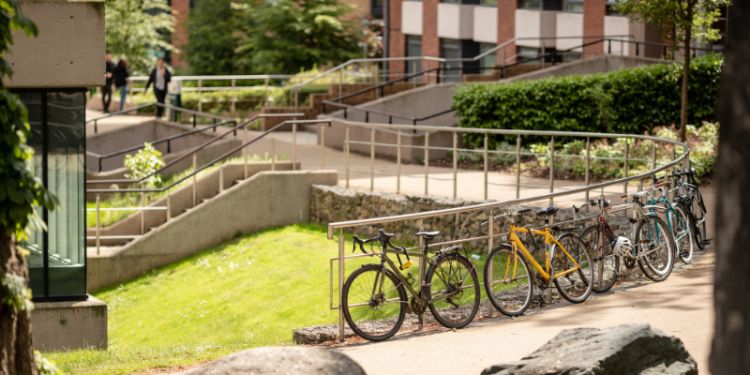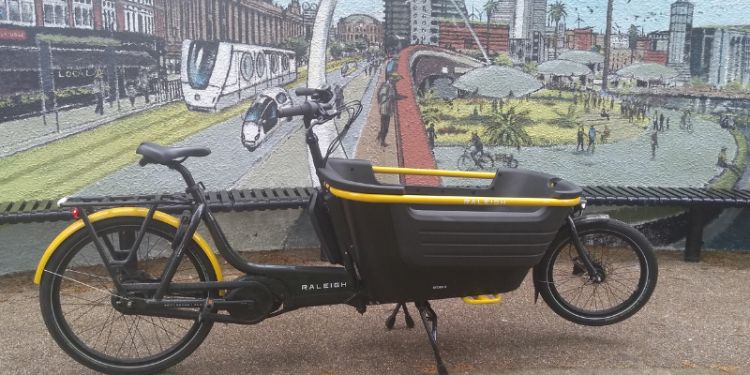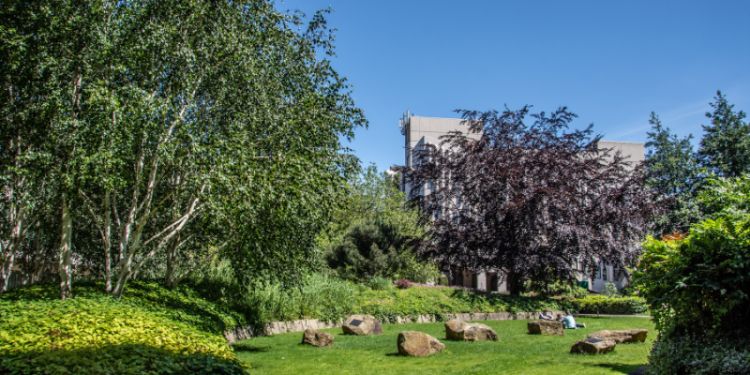Supporting Clean Air at Leeds

This Clean Air Day, we are celebrating the innovative research to support cleaner air in the Faculty of Environment and beyond.
Clean air is essential for the good health of our population as well as the natural environment. As Action for Clean Air and the World Health Organisation state:
Air pollution is the largest environmental health risk we face today.
This year’s Clean Air Day theme is mental and physical health. Wellbeing comes in many forms and so do the challenges and solutions to improving the quality of our air.
Some of the pathways to cleaner air include improving transport emissions, creating effective ventilation, understanding carbon storage, supporting wildlife and more.
At the University of Leeds, we collaborate across disciplines for a healthier and fairer future for all.
Understanding air quality
To introduce effective improvements to air quality, we must first understand the issues that different areas face.
In 2018, members of the Sustainability Service conducted assessments of the air quality on campus, as a Living Lab for Air Quality. The data they collected was shared openly so that it could be used by researchers, policymakers and the community. Dr Cat Scott explains:
“Our work sought to identify how pollution levels vary across campus and to get students involved in measuring the quality of the air around them.
From this data, we saw that pollution levels were always higher along the main road (Woodhouse Lane) and that by taking a cross-campus route, students, staff and members of the public alike could make sure they were breathing cleaner air.
Researchers in the School of Earth and Environment have developed low-cost devices that measure particulate matter in the air. These have been used across the world, including in Borneo, Montserrat and the UK.
In Bradford, they have been used to evaluate the air quality in and around primary schools as part of Born in Bradford Breathes.
Collaborating with the University of York, St. Stephen’s C of E Primary School and Bradford Council, this project allowed the pupils to understand air pollution by actively participating in monitoring it.
The researchers were then able to assess the effectiveness of Bradford’s Clean Air Zone. Similar research is currently being conducted into Clean Air Zones around the UK to evaluate whether they work and suggest ways to improve them.

Improving air quality through innovations to transport
The latest government statistics show that transport emits the highest percentage of greenhouse gas in the UK, up to 28% of emissions.
As such a large contributor to pollution, transport is a focus for many research projects in the University of Leeds, as we strive to create a fairer and healthier future for all.
Many disciplines are supporting this approach. For example in the Faculty of Engineering and Physical Science, scholars are conducting research into vehicle fuel production from food waste in order to seek solutions to high carbon emissions.
In the Faculty of Environment, the research project Towards Zero Carbon Aviation (TOZCA) has over 20 collaborators, including universities, government departments and stakeholders in the aviation industry. The project aims to simulate the most cost-effective transition towards a net zero-carbon aviation system by 2050.
There are many factors to consider – technology, fuel, operations, competing modes and consumer behaviour – yet this could have an incredible impact on climate change and air pollution across the globe.
The University is also involved with the Facility for Airborne Atmospheric Measurements Airborne (FAAM) Laboratory which is managed by the National Centre for Atmospheric Science.
It can record measurements of the atmosphere, detect the smallest cloud droplets, quantify chemical reactions, monitor weather systems and track pollution sources.
Back on the ground, researchers are studying the use of ecargo bikes versus cars in rural areas. Dr Ian Philips of the Institute for Transport Studies is leading a project that will take place in rural areas across the country, where cars are often heavily relied upon.
This study seeks to understand opinions about replacing cars with electric bikes. It will then seek to directly address those concerns by lending appropriate electric vehicles to families and training them to use and upkeep them safely. The researchers will then be able to visualise the positive effects and the challenges that come with using electric bikes instead of cars.
The multifaceted approach to improving air quality in the Faculty of Environment will address the range of challenges that local communities, councils and countries face regarding clean air.

Rewilding and conservation support clean air
As well as reducing the output of emissions, it’s essential to recognise the positive effects that nature has on the air.
Natural systems can store huge amounts of carbon, such as plants and peat bogs, and plants can also recycle carbon dioxide into oxygen.
Our researchers collaborate across the University and local communities on many projects that address the need to create, support and maintain these beneficial natural systems.
The Leeds Ecosystem, Atmosphere and Forest (LEAF) Centre, directed by Dr Cat Scott, hosts many of these projects. For example, they have conducted wide research about forests, plants and people and conservation biology which all highlight the importance of nature for the climate and the atmosphere.
As one of their many rewilding projects, members of LEAF have recently completed a planting project at Gair Wood. In this project, over 300 volunteers from the University and the local community planted almost 6,000 trees.
As well as supporting physical activity and time in nature for participants, both of which support mental and physical health, the project will allow researchers to monitor how the new trees affect their atmosphere.
We have already been able to identify the positive impact that our on-campus trees have on the environment. The iTree Leeds project “estimated that the trees on the University of Leeds campus were removing an amount of pollution equivalent to around 1 million cars driving past the University campus”, said Dr Cat Scott.

Climate solutions are clean air solutions
At the University of Leeds, sustainability, the climate and health equality are among our priorities. These are also encompassed by the same projects that contribute to cleaner air.
As such, the projects mentioned and many more will be supported to continue through to the future.
At the moment, a new Living Lab for our campus is being created by local artist Katie Surridge. This will be a green living wall that supports plant life, biodiversity and the campus’ atmosphere. It will allow the University to discover and evaluate how to make the campus even greener.
Our other ongoing projects include analysing Clean Air Zones across the UK and analysing the effects of disasters on air quality and health, such as the peat fires in Borneo.
Keep up to date with our multidisciplinary research projects with the University of Leeds Sustainability Service, the Priestley International Centre for Climate Futures, and the Faculty of Environment news.




